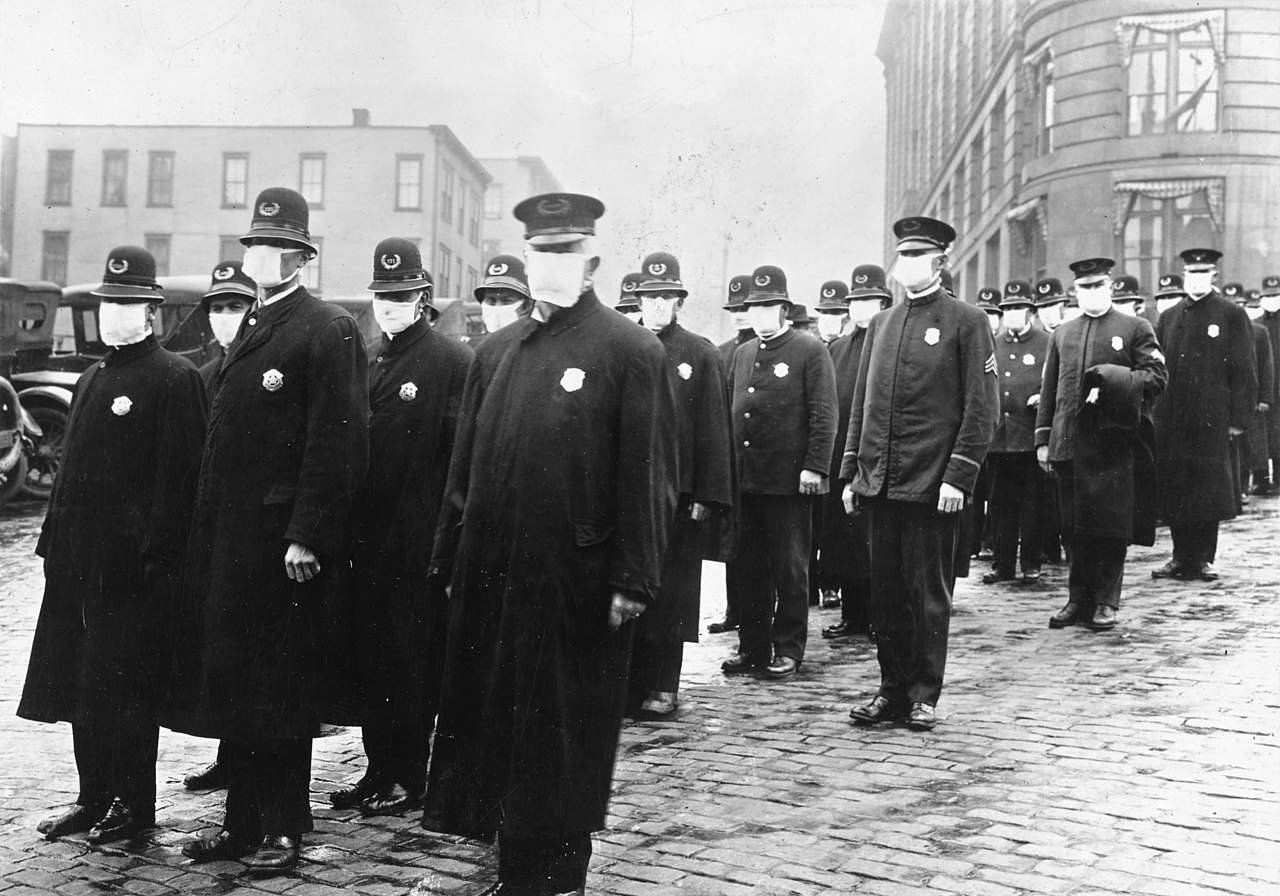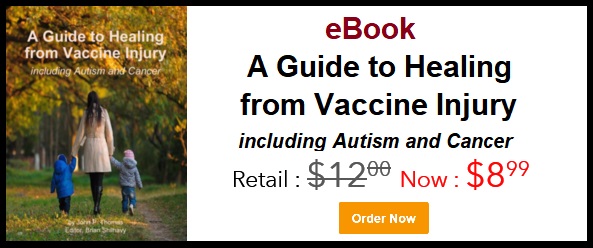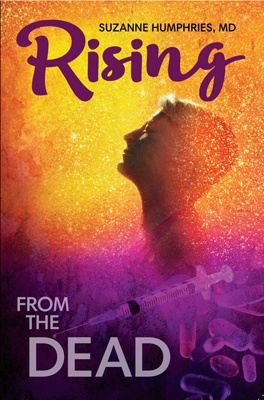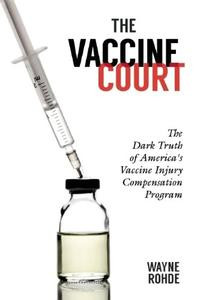
Policemen wearing masks provided by the American Red Cross in Seattle, 1918. Image source.
Health Impact News
Part 1:
Did a Military Experimental Vaccine in 1918 Kill 50-100 Million People Blamed as “Spanish Flu”?
Did a Vaccine Experiment on US Soldiers
Cause the Spanish Flu? (Part 2 of 5)
Did contaminated vaccines and other medical products made in horses play a critical role in killing 50-100 million in 1918-19?
By Kevin Barry, President
First Freedoms, Inc.
Introduction
The “Spanish Flu” killed an estimated 50-100 million people during a pandemic 1918-19.
What if the story we have been told about this pandemic isn’t true? What if, instead, the killer infection was neither the flu nor Spanish in origin?
Newly analyzed documents reveal that the “Spanish Flu” may have been a military vaccine experiment gone awry.
In looking back on the 100th anniversary of the end of World War I, we need to delve deeper to solve this mystery.
Summary from Part 1 (1):
- More soldiers died from disease than bullets during WWI.
- The Spanish Flu was neither Spanish nor Flu. According to a 2008 study by the U.S. National Institute of Health, the “predominant” killer in 1918-19 was bacterial pneumonia, and the first cases were not in Spain.
- Initial outbreaks can be traced to U.S. military bases. A bacterial vaccine experiment on soldiers at Fort Riley, Kansas is one of the military epicenters of the epidemic.
- The serums, anti-toxins and vaccines used on soldiers were made in horses at the Rockefeller Institute in New York (and in NJ). The same horses were used “in the preparation of diphtheria, tetanus antitoxin and antimeningococcus serum.” Same horses, multiple pathogens.
- When WW1 ended on November 11, 1918, soldiers returned to their home countries and colonial outposts, spreading the killer bacterial pneumonia worldwide.
- During WW1, the Rockefeller Institute also sent similar batches of the antimeningococcus serum used at Fort Riley to England, France, Belgium, Italy and other countries.
- Vaccine experiments like the WWI experiments on soldiers in WW1 are not a thing of the past. Watch as Dr. Stanley Plotkin,(2) the Godfather of the US vaccine program, describes his vaccine experiments on the mentally handicapped, orphans, children of mothers in prison. Dr. Plotkin expresses a preference for experimenting “on children and adults who are human in form but not in social potential.” The deposition was taken in January 2018.
In Part 1, I asked if medical products made in horses may have played a role in the new disease which killed millions worldwide in the pandemic of 1918-19.
The December 1917 issue of Popular Mechanics magazine (3) sheds light on the vaccine manufacturing process of 100 years ago.
The feature article, “How New York City’s Health Department Makes Serums and Vaccines for the United States Army” describes processes in place in 1917:
“After the horse has been inoculated with the disease poison in gradually increasing doses he is bled and his serum is found to be antitoxin.
This is administered to human beings and renders them immune to the disease …. Some horses give more antitoxin serum than others.
The same horse may be used at several different times for the preparation of distinctly different antitoxins … Horses are used in the preparation of diphtheria, tetanus antitoxin and antimeningococcus serum. “
It is difficult to believe that they used the same horses to make multiple disease serums, but they did.
If safety had been a concern, perhaps certain horses would have been dedicated to producing serum for one disease (or “poison” as the article calls it), but safety does not appear to be on the list of concerns.
These muddled and potentially contaminated serums were then given to soldiers (and to the public).
SPECIES JUMP?
Were pathogens transferred from these horses to humans in mass quantities in ways they had never transferred before?
Humans and horses had interacted closely for centuries, but horse serum had not been injected into humans in that way before, bypassing the human immune system.
Is it possible that this new method of exposure caused the bacterial pneumonias which ripped human lungs apart in ways never seen before?
Could pathogens relatively harmless to horse lungs make a species-jump and destroy human lungs?
In 1919, a Dutch military veterinarian named Captain Emile Bemelmans “developed an extensive theory on the relation between human and animal influenza …. In 1919, he argued that ‘the human ‘flu’ and the so-called ‘infectious disease of the breast’ of horses are exactly identical in aetiological, bacteriological and epidemiological senses’.
“In 1919, Bemelmans’s argument on the identical nature of human and horse influenza in the Nederlandsch Tijdschrift voor Geneeskunde (the Dutch medical journal) was reviewed in the veterinary journal,
… in 1914 he extended his theory on horse flu to several human and animal infectious diseases in an article in the Dutch medical journal. Bemelmans listed human influenza as an example among many other animal and human diseases which he thought were accompanied by (deadly) infections of streptococci.
Although he did not yet argue that human and horse flu were exactly equal, he did explicitly note their similarities: ‘Also between the human influenza and the so-called breast disease in horses peculiar similarities exist’…
Dr. Bemelmans’s contemporaneous observations have largely been lost to history, in part because of the self important attitude of the medical community.
The hubris of the medical community prevented them from listening to a lowly veterinarian.
However, Dr. Bemelmans’s observations and persistence in getting them published are extraordinarily valuable. His awareness at the time that bateria was the killer of both humans and horses in the pandemic of 1918-19 put him decades ahead of his contemporaries.
The NIH paper describing bacteria as the predominant killer was published in 2008.(5)
If Dr. Bemelmans was correct that horses and humans were suffering from an identical disease, are there diseases identical (or very similar) in both horses and humans? Do any of those diseases target the lungs?
“Animal Models – A Neglected Medical Resource”, Cornelius, CE, DVM, Ph.D.N Engl J Med 1969; 281:934-944 (6)
In a 1969 paper, Kansas State University veterinarian Dr. Charles E. Cornelius compiled a list of diseases which were very similar or identical in humans and various other species. Among the diseases identical/very similar in humans and horses is pulmonary emphysema, which targets the lungs.
Did a pathogen which causes pulmonary emphysema “species-jump” from horses to humans in these serums and vaccines?
The vaccines were obviously manufactured in primitive, unavoidably unsafe conditions and then given to WW1 soldiers as an experiment.
What exactly was in the serums and vaccines made in the horses at the Rockefeller Institute – especially considering that the same individual horses were used to for variety of serums for multiple diseases?
Recall from Part 1 that Streptococci bacteria were commonly found in the tissue samples from the autopsies of those who died in 1918-19. (5)
Cornelius said human and horse pulmonary emphysema are identical. Bemelmans reported that humans and horses were suffering from the same disease.
Did doctors treating soldiers suffering from “Spanish Flu” report on encountering a new killer type of pulmonary emphysema, causing lung damage that they had ever seen before?
PULMONARY EMPHYSEMA AT CAMP HANCOCK GEORGIA
“Acute Pulmonary Emphysema Observed During the Epidemic of Influenzal Pneumonia at Camp Hancock, Georgia”Robert G. Torrey American Journal of the Medical Sciences 1919, p. 170 – 181 (7)
Captain Dr. Torrey served at Camp Hancock, just outside of Augusta, GA. The soldiers who came through Camp Hancock were likely on their way to Charleston, SC to board ships to France, but many of them would not survive to get to the front.
Thousands died at Camp Hancock. Some who survived the illness likely made it to the ships, potentially passing the infectious bacteria to other soldiers in the unsanitary conditions which were rampant during WWI.
From Dr. Torrey’s report:
“Summary
… Certain conditions were invariably present, including an intense bronchitis and peribronchitis similar to that found in a previous epidemic of pure hemolytic streptococcus infection (Scarlet Fever). There was also present from the first a destructive softening of the lung parenchyma.
In addition to this there was always an early and persisting generalized pulmonary emphysema which frequently was the main factor in causing death by interference with the mass movement of venous blood.
These conditions were found in every case examined at autopsy. Except for frequent otitis media (ear infection) there were almost no complications or sequelae outside of the chest.
The pulmonary emphysema, with consequent venous stasis, accounted for the cyanosis (turning blue/purple color), epistaxis (nosebleeds) and fixation of the chest in the phase of extreme inspiration (inhaling), with low stand of the diaphragm, which characterized these cases, and also accounted for the paradoxical physical signs (paradoxical breathing) in which fluid developed in the chest.”
Torrey describes what happened to these soldiers as they died. They were coughing, becoming “cloud adults” (8) (as described in Part 1).
It looked like a bacterial infection to him. Autopsies showed lung tissue had been damaged, which restricted blood flow, turning the dying a bluish/purple color, due to lack of oxygen.
When the patients tried to inhale, their diaphragms constricted instead of expanded, the opposite of what diaphragms are supposed to do.(9) Fluids then filled their lungs, and many did not survive, literally the fluid in their lungs strangling the soldiers to death.
FLUID IN THE LUNGS STRANGLED THE HUMAN VICTIMS OF SPANISH FLU – STRANGLES?
There is a highly contagious horse respiratory infection called Strangles (or Distemper). If this disease can kill horses, what would it do to human lungs if introduced into humans, via injection and therefore bypassing the immune system, on a mass scale?
Did streptococcus equi contaminate the serums and vaccines made in horses produced at the Rockefeller Institute and injected into soldiers in a vaccine experiment? Was streptococcus equi in the medical serums given to the soldiers as treatments? Was it some other pathogen which species jumped?
Did medical hubris lead to a mistake which caused a species jump which killed 50-100 million people 100 years ago?
WHAT NOW?
The vaccine industry is always looking for human test subjects. They have the most success when they are able to find populations who are not in a position to refuse. Soldiers (11), infants, the disabled, prisoners, those in developing nations – anyone not in a position to refuse.
Vaccine experimentation on vulnerable populations is not an issue of the past.
Watch this video clip of Dr. Stanley Plotkin where he describes using experimental vaccines on orphans, the mentally retarded, prisoners, and those under colonial rule.
The deposition was in January 2018.
The hubris of the medical community is the same or worse now than it was 100 years ago.
Watch as Dr. Plotkin admits to writing,
“The question is whether we are to have experiments performed on fully functioning adults and on children who are potentially contributors to society or to perform initial studies in children and adults who are human in form but not in social potential.”
Please watch the horrifying video clip. (12)
In part because the global community is well aware of medical hubris and well aware of the poor record of medical ethics, the Universal Declaration on Bioethics and Human Rights (13) developed international standards regarding the right to informed consent to preventative medical procedures like vaccination.
The international community is well aware that the pharmaceutical industry makes mistakes and is always on the lookout for human test subjects.
The Declaration states that individuals have the human right to consent to any preventative medical intervention like vaccination.
Article 3 – Human dignity and human rights
1. Human dignity, human rights and fundamental freedoms are to be fully respected.
2. The interests and welfare of the individual should have priority over the sole interest of science or society.Article 6 – Consent
1. Any preventive, diagnostic and therapeutic medical intervention is only to be carried out with the prior, free and informed consent of the person concerned, based on adequate information. The consent should, where appropriate, be express and may be withdrawn by the person concerned at any time and for any reason without disadvantage or prejudice. (13)
Clean water, sanitation, flushing toilets, refrigerated foods and healthy diets have done and still do far more to protect humanity from infectious diseases than any vaccine program. Doctors and the vaccine industry have usurped credit which rightfully belongs to plumbers, electricians, sandhogs, engineers and city planners.
For these reasons, policy makers at all levels of government should protect the human rights and individual liberties of individuals to opt out of vaccine programs via exemptions.
The hubris of the medical community will never go away. Policy makers need to know that vaccines like all medical interventions are not infallible. Vaccines are not magic. We all have different susceptibility to disease. Human beings are not one size fits all.
In 1918-19, the vaccine industry experimented on soldiers, likely with disastrous results.
In 2018, the vaccine industry experiments on infants every day. The vaccine schedule has never been tested as it is given. The results of the experiment are in: 1 in 7 American children is in some form of special education and over 50% have some form of chronic illness. (14)
In 1918-19, there was no safety follow up after vaccines were delivered.
In 2018, there is virtually no safety follow up after a vaccine is delivered. Who exactly gave you that flu shot at Rite Aid? Do you have the cell number of the store employee if something goes wrong?
In 1918-19, there was no liability to the manufacturer for injuries or death caused by vaccines.
In 2018, there is no liability for vaccine manufacturers for injuries or death caused by vaccines, which was formalized in 1986. (15)
In 1918-19, there was no independent investigative follow up challenging the official story that “Spanish Flu” was some mystery illness which dropped from the sky.
I suspect that many of those at the Rockefeller Institute knew what happened, and that many of the doctors who administered the vaccines to the troops knew what happened, but those people are long dead.
In 2018, the Pharmaceutical industry is the largest campaign donor to politicians and the largest advertiser in all forms of media, so not much has changed over 100 years. This story will likely be ignored by mainstream media because their salaries are paid by pharmaceutical advertising.
The next time you hear someone say “vaccines save lives” please remember that the true story of the cost/benefit of vaccines is much more complicated than their three word slogan.
Also remember that vaccines may have killed 50-100 million people in 1918-19. If true, those costs greatly outweighed any benefit, especially considering that plumbers, electricians, sandhogs and engineers did, and continue to do, the real work which reduces mortality from disease.
Vaccines are not magic.(16) Human rights and bioethics are critically important. Policy makers should understand the history of medical hubris and protect individual and parental human rights as described in the Universal Declaration on Bioethics and Human Rights.
——————–
Kevin Barry is the President of First Freedoms, Inc. a 501.c.3. He is a former federal attorney, a rep at the UN HQ in New York and the author of Vaccine Whistleblower: Exposing Autism Research Fraud at the CDC. Please support his work at www.firstfreedoms.org
Read the full article at FirstFreedoms.org.
REFERENCES
1. Part 1 of this series www.firstfreedoms.org
2. Dr. Stanley Plotkin: vaccine experiments on orphans, the mentally retarded, and others (January 2018)
3. “How New York City’s Health Department Makes Serums and Vaccines for the United States Army,” see Slide 7
Popular Science, December 1917
Courtesy Smithsonian Libraries, National Museum of American History
https://www.nlm.nih.gov/exhibition/fromdnatobeer/exhibition-living-factories.html
4. Haalboom, F., 2014. ‘Spanish’ flu and army horses: what historians and biologists can learn from a history of animals with flu during the 1918–1919 influenza pandemic. Studium, 7(3), pp.124–139. DOI: http://doi.org/10.18352/studium.9830
5,. J Infect Dis. 2008 Oct 1; 198(7): 962–970. Predominant Role of Bacterial Pneumonia as a Cause of Death in Pandemic Influenza: Implications for Pandemic Influenza Preparedness
David M. Morens, Jeffery K. Taubenberger, and Anthony S. Fauci
https://www.ncbi.nlm.nih.gov/pmc/articles/PMC2599911/
6. Animal Models – A Neglected Medical Resource
Cornelius, CE, DVM, Ph.D.
Department of Physiological Sciences, College of Veterinary Medicine, Kansas State University October 23, 1969
N Engl J Med 1969; 281:934-944
https://www.nejm.org/doi/full/10.1056/NEJM196910232811706
7. “Acute Pulmonary Emphysema Observed During the Epidemic of Influenzal Pneumonia at Camp Hancock, Georgia”
Robert G. Torrey
American Journal of the Medical Sciences 1919, p. 170 – 181
https://quod.lib.umich.edu/f/flu/0470flu.0016.740/1/–acute-pulmonary-emphysema-observed-during-the-epidemic?view=image
8. Horse Strangles | Streptococcus equi subsp equi infection in horses (2015)
Ashley G. Boyle, DVM, DACVIM (Large Animal Internal Medicine), Department of Clinical Studies, New Bolton Center, University of Pennsylvania, School of Veterinary Medicine http://vetspecialists.com/horse-strangles-streptococcus-equi-subsp-equi-infection-in-horses/
9. Deaths from Bacterial Pneumonia during 1918–19 Influenza Pandemic
John F. Brundage* and G. Dennis Shanks†
Author affiliations: *Armed Forces Health Surveillance Center, Silver Spring, Maryland, USA; †Australian Army Malaria Institute, Enoggera, Queensland, Australia
https://wwwnc.cdc.gov/eid/article/14/8/07-1313_article
10. What is paradoxical breathing?
Sun 5 November 2017
https://www.medicalnewstoday.com/articles/319924.php
11. Is Military Research Hazardous to Veterans’ Health? Lessons Spanning Half a Century, A Staff Report Prepared for the Committee on Veterans’ Affairs, United States Senate, December 1994 https://www.hsdl.org/?abstract&did=438835
12. Dr. Stanley Plotkin: vaccine experiments on orphans, the mentally retarded, and others (January 2018)
13. Universal Declaration on Bioethics and Human Rights (19 October 2005)
http://portal.unesco.org/en/ev.php-URL_ID=31058&URL_DO=DO_TOPIC&URL_SECTION=201.html
14. CDC Offers New Stats On Disability Prevalence
https://www.disabilityscoop.com/2016/03/14/cdc-disability-prevalence/22034/
15. 1986 Vaccine Injury Compensation Act
https://worldmercuryproject.org/news/childhood-vaccine-injury-act-protect/
16. “How New York City’s Health Department Makes Serums and Vaccines for the United States Army,” see Slide 7
Popular Science, December 1917
Courtesy Smithsonian Libraries, National Museum of American History
https://www.nlm.nih.gov/exhibition/fromdnatobeer/exhibition-living-factories.html
Leaving a lucrative career as a nephrologist (kidney doctor), Dr. Suzanne Humphries is now free to actually help cure people.
In this autobiography she explains why good doctors are constrained within the current corrupt medical system from practicing real, ethical medicine.
One of the sane voices when it comes to examining the science behind modern-day vaccines, no pro-vaccine extremist doctors have ever dared to debate her in public.
-
Book – The Vaccine Court, by Wayne Rohde – 240 pages
“The Dark Truth of America’s Vaccine Injury Compensation Program”
FREE Shipping Available!
ORDER HERE!







Over time, people’s bodies adapt and build up a resistance to it but if you checked modern pandemics along side technology advances, they always coincide without exception.
Unusual sunspot activity also caused plagues in older times as they also caused severe weather. That’s why plagues always coincided with extreme weather conditions.